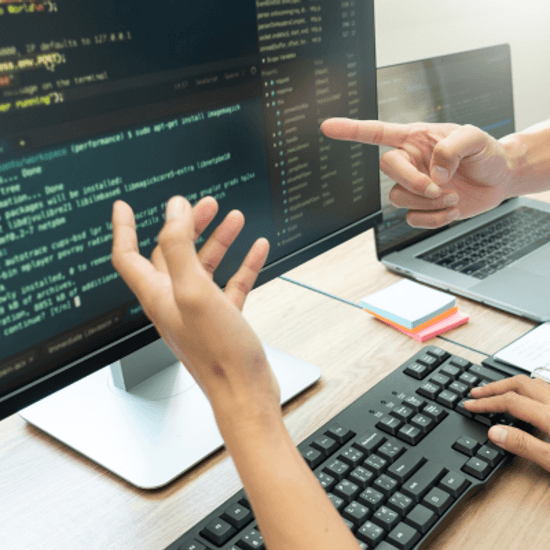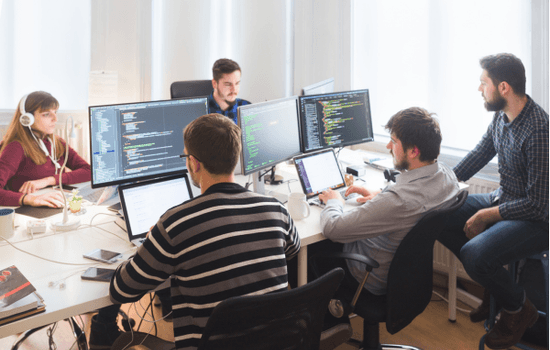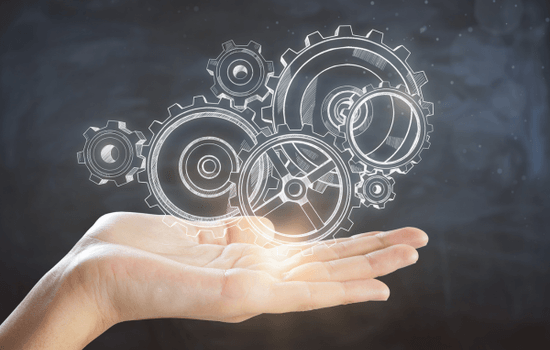Artificial Intelligence (AI) is no longer a distant concept reserved for science fiction or cutting-edge research labs. It is firmly embedded in our daily lives, reshaping industries across the board – and software engineering is no exception. From code generation to system design, AI is redefining the skills, workflows, and expectations associated with being a software engineer.
In this blog, we’ll explore how AI is transforming the role of software engineers, what new skills are becoming essential, and how both job seekers and employers in the tech sector can adapt to stay ahead.
Automation of Routine Tasks
One of the most immediate impacts of AI is the automation of repetitive and time-consuming coding tasks. Tools like GitHub Copilot and Amazon CodeWhisperer can suggest lines of code, write functions, and even generate boilerplate code based on natural language prompts.
This doesn’t mean AI is replacing software engineers. Rather, it’s streamlining workflows and freeing up time for developers to focus on more strategic, creative, or complex aspects of software development – such as system architecture, product design, and user experience.
What this means for engineers: Strong problem-solving skills and creativity are becoming even more critical. Engineers must be able to guide AI tools effectively and evaluate their outputs critically.
Shifting Skill Requirements
Traditionally, software engineering roles emphasised deep programming expertise and detailed knowledge of specific frameworks or languages. While these are still valuable, the growing use of AI is shifting the spotlight to broader competencies such as:
-
Prompt engineering – the ability to frame effective questions or instructions to guide AI tools.
-
Data literacy – understanding how data flows through systems and how AI models use it.
-
Critical thinking – being able to validate AI-generated code and ensure it meets quality and security standards.
Additionally, engineers increasingly need a working knowledge of how machine learning models work – even if they’re not building them from scratch – to collaborate effectively with data science teams.
Advice for candidates: Embrace continuous learning. Staying current with AI tools and platforms will be essential to remaining competitive in the job market.
Changing Workflows and Collaboration
AI is also changing how engineering teams collaborate. Traditional workflows, where developers wrote, tested, and deployed code manually, are being supplemented with AI-assisted DevOps pipelines. AI can now predict code errors, suggest performance improvements, and even flag potential security vulnerabilities in real-time.
Furthermore, AI enhances collaboration tools by translating natural language requirements into technical tasks or generating documentation from code automatically. This means engineers can work more efficiently across functions, including with product managers and designers.
Impact on teams: Communication and cross-functional collaboration skills are now just as important as technical ability. AI lowers the technical barrier for non-developers to interact with code and software products, so engineers must be able to operate in more integrated, multidisciplinary teams.
Redefining What "Coding" Means
In the past, coding was synonymous with typing line after line of syntax into an IDE. Now, with the rise of low-code and no-code platforms powered by AI, the definition is evolving. While these platforms don’t replace the need for skilled software engineers, they do change what coding entails.
More engineers are becoming system designers or solution architects, using AI tools to build and orchestrate components rather than coding every detail by hand. In some cases, this means less time writing code and more time thinking about how systems interact, scale, and perform.
Tip for employers: When hiring, look beyond syntax proficiency. Seek out candidates who can think systemically, communicate effectively, and adapt to new tools and environments.
Ethical and Governance Considerations
As AI takes on a greater role in software development, engineers also need to consider the ethical implications of their work. This includes understanding:
-
Bias in AI models – and how to mitigate it
-
Data privacy laws and compliance – such as GDPR
-
Accountability for AI-generated decisions
Software engineers are increasingly being asked to participate in governance discussions, risk assessments, and policy development. This broadens the traditional remit of the role and requires a more holistic view of the software lifecycle.
What to watch for: The rise of AI ethics in engineering may lead to new job titles and responsibilities, such as AI risk analyst or compliance engineer.
The Rise of AI-First Startups and Teams
Another notable shift is the emergence of AI-first businesses – companies whose core products or operations are driven by AI. These organisations need engineers who not only understand traditional software development but can also design and deploy AI models.
While larger companies might have dedicated machine learning teams, smaller firms are looking for versatile engineers who can work across the stack and incorporate AI into applications as needed.
Recruitment insight: There’s a growing demand for hybrid roles – engineers who are comfortable with both software development and AI tooling. These candidates are highly valuable in a tight labour market.
Preparing for the Future
For job seekers and employers alike, the evolution of the software engineering role presents both challenges and opportunities.
For job seekers:
-
Invest in learning AI tools relevant to your field.
-
Build a portfolio that demonstrates problem-solving with AI.
-
Emphasise soft skills like communication and adaptability in interviews.
For employers:
-
Rethink job descriptions to reflect evolving responsibilities.
-
Offer training and support for existing teams to adopt AI tools.
-
Look for candidates with a balance of technical skills and systems thinking.
Final Thoughts
AI is not making software engineers obsolete – far from it. Instead, it's elevating the role to one that is more strategic, collaborative, and focused on solving high-level problems. By embracing this shift, both engineers and employers can harness the power of AI to build better software, faster and more efficiently than ever before.
At First Achieve, we’re committed to helping both candidates and companies navigate this changing landscape. Whether you're looking to build your AI-ready engineering team or searching for your next role in a tech-driven environment, we can help you stay ahead of the curve.












